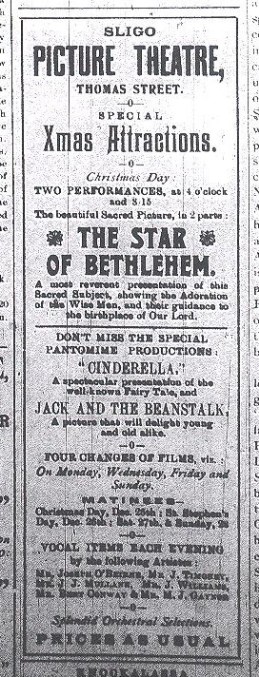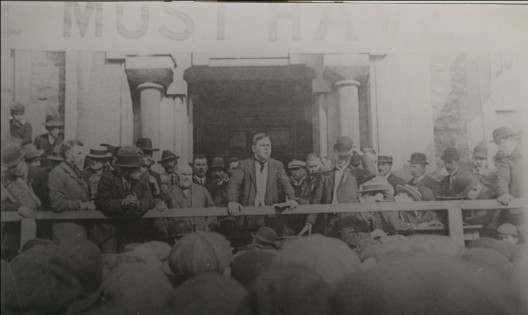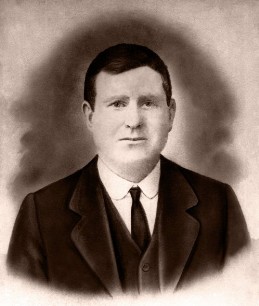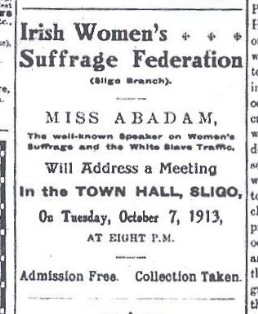Sligo 1913 - Sligo Poets
Main menu:
- Home
-
1912
- 1912
- Sligo Poetry 1912
-
1913
- 1913
- Sligo Poetry 1913
-
1914
- 1914
- Sligo Poetry 1914
-
1915
- 1915
-
Sligo Poetry 1915
- Sligo Newspaper Poems
- Sligo Champion
- Sligo Independent
- Sligo Nationalist
-
1916
- 1916
-
Sligo Poetry 1916
- Sligo Newspaper Poems 1916
- Sligo Champion
- Sligo Nationalist
- Sligo Independent
- The Poets
- Bibliography
- The Author

County Sligo 1913
In late 1911 or early 1912 Tadhg Kilgannon had opened the first cinema in Sligo, the Picture Theatre in Thomas Street. On March 29, 1913 this cinema showed film of the laying of the foundation of the P.A. McHugh monument in Sligo which had been taken by Kilgannon. This was, the local press reported, his first effort at such.
In March the Rink Picture Palace was opened in Adelaide Street. In September it reopened under the management of the Sligo Living Picture company. W Payne Seddon was the Managing Director and local man John Monson was the manager.
Calty-

The nationalist campaign in support of Home Rule continued in 1913 with Sligo branches of the UIL encouraged to collect the Home Rule Fund and continue to show their support for the Irish Party.
A series of large pro-
The determined campaign against the Home Rule bill by Sligo unionists continued with meetings organized by local branches of the Women’s Unionist Alliance and the Irish Junior Unionist Alliance.
Government funds were being made available to deal with TB/Consumption and counties were asked to set up dispensaries and establish a sanatorium individually or jointly. Dr P J Burke Tobercurry was appointed TB Officer for Sligo on a salary of £450 p.a. plus travelling expenses of £50. It was decided to buy Cloonamahon House, Collooney and make it a TB sanatorium.

Labour power in Sligo town was consolidated when John Lynch (left) was elected to the Corporation in January 1913, heading the poll in the north ward.
In March a dispute about unpaid bonus money escalated into a major strike which paralyzed the port and much of Sligo town. Strike breakers from Liverpool and ousted stevedores worked on the ships and a striker was killed in clashes with strike breakers. Business premises windows were smashed and traders who dealt with ‘scab’ labourers were boycotted.
Local nationalist political leaders, John Jinks and Daniel O’Donnell, supported the strikers. After fifty-
Olga Crichton had been involved in a Sligo branch of the Irish Women’s Franchise League (IWFL) but in May 1913 she left the IWFL and affiliated with the non-
This society held a series of Wednesday outdoor meetings at Rosses Point during summer 1913 featuring prominent speakers from Ireland and Britain.
Olga herself sold the Irish Citizen, the Irish suffrage newspaper, on Saturdays in Sligo town.
